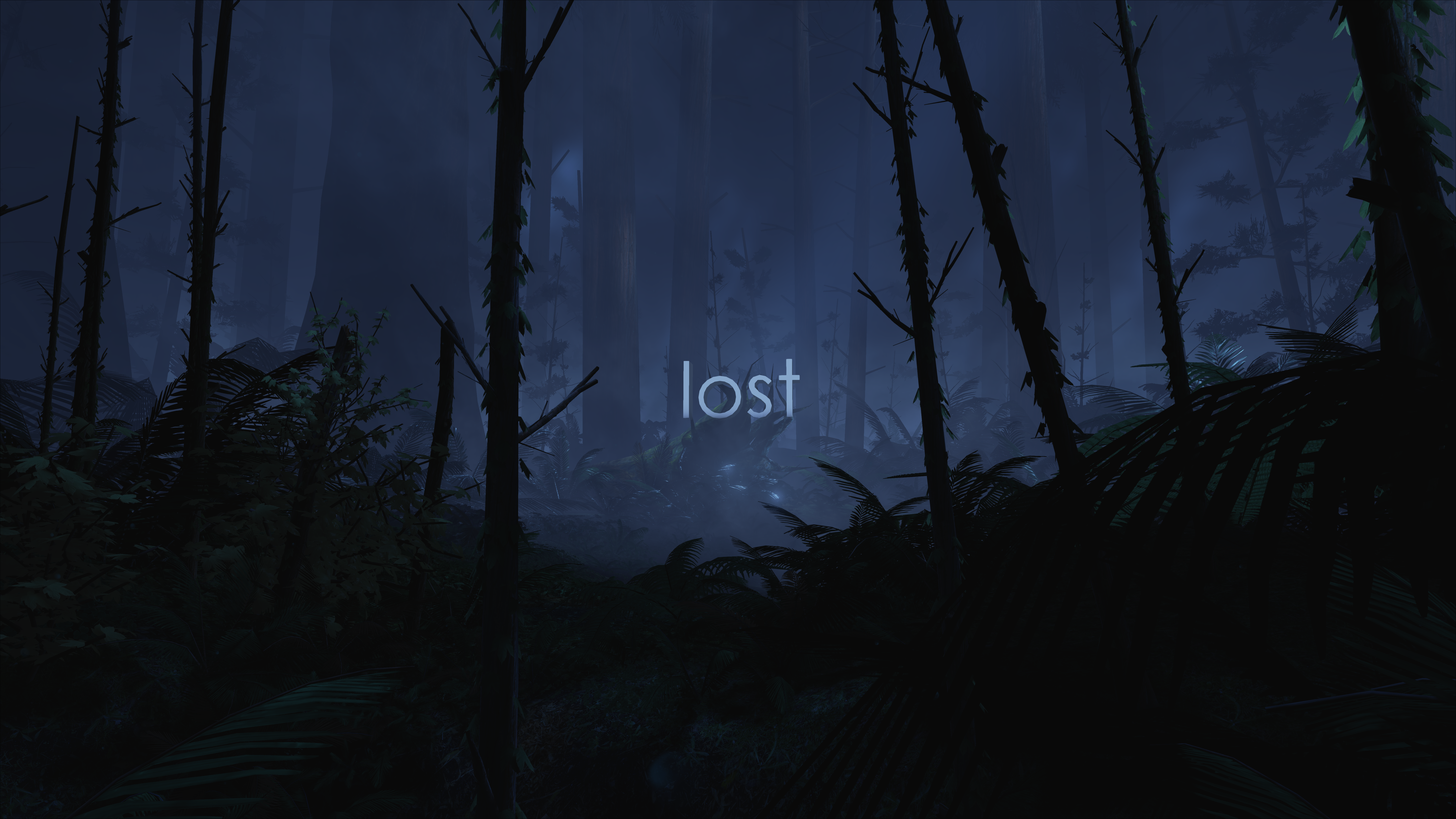Oculus And Epic Team Up On VR Content
Will VR enable a perfect blending of games and movies, or usher in a whole new form of story-telling and content creation? We interviewed execs from Oculus and Epic to gain some insight.
Interview: Oculus Story Studio Producer, Edward Saatchi
Tom's Hardware: What is the progress so far of getting the big studios involved in creating content? What are their barriers, and what is Oculus doing to make the barriers lower?
Oculus' Edward Saatchi: With Story Studio, we’re looking at original new made-for-VR cinematic content that we hope inspires other to take the leap into this exciting new medium for storytelling. We’re already seeing major studios starting to get involved in the space and producing excellent content 360-degree content like Wild with Reese Witherspoon and the Jurassic World VR experience by Universal Pictures and Felix and Paul [Studios]. This is just the beginning.
Tom's Hardware: When does the content get longer? [Note: Henry is only about 15 minutes.]
Oculus' Edward Saatchi: Given how new the medium of VR is, we feel that we can learn more by creating more short pieces rather than investing in one large film, is the most effective way to learn as much as possible. Moreover, shorter content is less expensive to produce and overall less risky, especially when everyone’s still learning.
Tom's Hardware: When did Oculus create Studios? How many people? Where is that part of the company located? What are the company’s expectations of this division? How much has the company invested in this aspect?
Oculus' Edward Saatchi: Oculus Story Studio has been around for about a year. The team’s still relatively small - roughly 15 engineers, artists, designers, and storytellers - but with an incredible amount of talent and experience. Our mission is to inspire through the creation of VR films and to educate by sharing everything we learn with the community.
Tom's Hardware: I understand Unreal Engine was used for this. Why was UE 4 used?
Get Tom's Hardware's best news and in-depth reviews, straight to your inbox.
Oculus' Edward Saatchi: We chose Unreal Engine 4 by Epic Games as the engine for both Lost and Henry. It’s an incredible toolset for real-time graphics and storytelling, and we’re working with Epic on building more cinematic tools on top of it. The real-time nature of the engine and film is key, as it allows us to walk around and explore Henry’s house, as well as enabling Henry to react to the audience and their movement.
Tom's Hardware: To run Henry are we talking the same level of hardware for the PC as will be required to run a video game on Oculus?
Oculus' Edward Saatchi: Yes, it is roughly equivalent to what’s required to run a high-quality video game on the Rift. You can learn more about the Rift’s recommended spec on the oculus.com.
Tom's Hardware: Going to the movies (and yes, I know plenty of us watch them alone on an airplane with headphones on or at home or on iPads) is a community and family event. The Oculus movie event kind of changes that. That’s a big cultural shift. What does Oculus studios think will become of the future of movies in light of the immersive aspect of this experience? Will it hurt the family/community nature of movie going?
Oculus' Edward Saatchi: We don’t think so; rather, film and storytelling can be more social than ever with virtual reality. At Tribeca, we debuted a new version of our first short film, Lost, in which two audience members could watch the film together at the same time. Each audience member was embodied as a firefly in the forest, and you can see the other audience member moving about the scene as well as where they’re looking. Sharing the experience with someone else is just as powerful as it is in real life, and when you imagine the story being able to interact with you, we expect VR films in the future to achieve some remarkable things.
Tom's Hardware: Does Oculus see this kind of content beyond animation? The VR movie experience with real characters?
Oculus' Edward Saatchi: We are excited by the opportunities of live action. Having real life actors looking right at you in a film adds a level of presence that traditional 2D and 3D films can’t offer without breaking 4th wall and in VR, there are no walls. We have experienced exciting experiments in live action already, and although there is a lack of positional tracking in live action, we think it presents powerful possibilities for the future of storytelling.
Tom's Hardware: It seems to me that there’s a much more real intersection of movies and games possible here. How is the movie/entertainment group working with the game creation group at Oculus, or aren’t they yet?
Oculus' Edward Saatchi: Oculus Story Studio is actively experimenting and researching how to tell a story using virtual reality. We, along with the entire VR community, are literally inventing the language of VR right now. And we are sharing our best practices with the community at large, including film, gaming, etc. Games convey a story to the user, whether very complex, or very simple, and with VR, we need to be able to use this emerging medium to its maximum potential. And its potential is vast. So we are sharing best practices, both successes and failures, that we hope will help developers in the story telling process as they continue developing games. We are inspired by the genre of narrative games, such as Gone Home, Stanley Parable and Dear Esther.
Fritz Nelson is the Editor-In-Chief of Tom's Hardware. Follow him on Twitter, Facebook and Google+.
Current page: Interview: Oculus Story Studio Producer, Edward Saatchi
Prev Page Interview: Epic Unreal Engine GM, Ray Davis-
Eggz Can't wait to try Oculus next week! Buddy has one at work. This article makes me super stoked about it :)Reply -
hixbot I'd like to hear how developers plan on making first person shooters. How they'll dissociate the aim of your gun from the head tracking view. I don't want to aim the gun with my head.Reply -
jkflipflop98 ReplyI'd like to hear how developers plan on making first person shooters. How they'll dissociate the aim of your gun from the head tracking view. I don't want to aim the gun with my head.
You ever played ARMA? There's your answer. You can turn your head and look around independent of where your gun is firing. In TF2 in VR, you can lock down a hallway with the heavy weapons guy and while still firing you can look back over your shoulder to make sure there's no spies coming up on you.
No thank you. Surround is way better imo.
In no universe will that ever be true. You should try out an HMD once before making up your mind.
-
loki1944 Reply16580718 said:I'd like to hear how developers plan on making first person shooters. How they'll dissociate the aim of your gun from the head tracking view. I don't want to aim the gun with my head.
You ever played ARMA? There's your answer. You can turn your head and look around independent of where your gun is firing. In TF2 in VR, you can lock down a hallway with the heavy weapons guy and while still firing you can look back over your shoulder to make sure there's no spies coming up on you.
No thank you. Surround is way better imo.
In no universe will that ever be true. You should try out an HMD once before making up your mind.
I had a DK2 and I have surround with 3xROG Swift monitors; surround wins imo. -
mr2shim Reply16580718 said:I'd like to hear how developers plan on making first person shooters. How they'll dissociate the aim of your gun from the head tracking view. I don't want to aim the gun with my head.
You ever played ARMA? There's your answer. You can turn your head and look around independent of where your gun is firing. In TF2 in VR, you can lock down a hallway with the heavy weapons guy and while still firing you can look back over your shoulder to make sure there's no spies coming up on you.
No thank you. Surround is way better imo.
In no universe will that ever be true. You should try out an HMD once before making up your mind.
I had a DK2 and I have surround with 3xROG Swift monitors; surround wins imo.
If you're being realistic you'd realize most people don't have the space, funds or care to have triple monitor setups. Besides, why are you comparing development hardware to consumer hardware? Save your doubts for consumer VR. -
loki1944 Reply16592429 said:16580718 said:I'd like to hear how developers plan on making first person shooters. How they'll dissociate the aim of your gun from the head tracking view. I don't want to aim the gun with my head.
You ever played ARMA? There's your answer. You can turn your head and look around independent of where your gun is firing. In TF2 in VR, you can lock down a hallway with the heavy weapons guy and while still firing you can look back over your shoulder to make sure there's no spies coming up on you.
No thank you. Surround is way better imo.
In no universe will that ever be true. You should try out an HMD once before making up your mind.
I had a DK2 and I have surround with 3xROG Swift monitors; surround wins imo.
If you're being realistic you'd realize most people don't have the space, funds or care to have triple monitor setups. Besides, why are you comparing development hardware to consumer hardware? Save your doubts for consumer VR.
Yes, I have played the series since Operation Flashpoint came out in 2001, the severe FPS drops of the Arma 2/Arma 3 and DayZ engines make them some of the worst games to use with VR. Consumer version will not overcome the nausea/de-realization/dizziness issues already found in DK1 and DK2; better tracking, higher refresh and resolution can only do so much and cannot eliminate the problem completely from FPS games. If you were realistic you'd realize that most people don't have the hardware to even drive a VR unit (take a look at the steam hardware survey).
-
mr2shim Reply16593235 said:Yes, I have played the series since Operation Flashpoint came out in 2001, the severe FPS drops of the Arma 2/Arma 3 and DayZ engines make them some of the worst games to use with VR. Consumer version will not overcome the nausea/de-realization/dizziness issues already found in DK1 and DK2; better tracking, higher refresh and resolution can only do so much and cannot eliminate the problem completely from FPS games. If you were realistic you'd realize that most people don't have the hardware to even drive a VR unit (take a look at the steam hardware survey).
Most people don't have the hardware right now today. Will that change over time? Obviously it will. Most people have computers that can run Crysis maxed out. When the game was released did most people have computers with that kind of computing power? No. You're being illogical. DK2 was a massive improvement over DK1 in terms of motion sickness. There will always be naysayers, so your opinion really doesn't matter in the grand scheme of things.
In 3 years when you and your buddies are fapping to VR porn. Remember this..
told ya so
-
loki1944 Reply16594249 said:I had a DK2 and I have surround with 3xROG Swift monitors; surround wins imo.
I doubt you've ever tried an HMD. Even with three monitors you're still only taking up a small amount of your field of view and they're fixed. Wearing an HMD is like having a big monitor all around you in 1:1 3D. You have to try one before you understand what is going on.
Here's evidence: http://s1068.photobucket.com/user/loki1944/media/DK2_zpsdostn9ue.jpg.html Try again. -
loki1944 Reply16595551 said:16593235 said:Yes, I have played the series since Operation Flashpoint came out in 2001, the severe FPS drops of the Arma 2/Arma 3 and DayZ engines make them some of the worst games to use with VR. Consumer version will not overcome the nausea/de-realization/dizziness issues already found in DK1 and DK2; better tracking, higher refresh and resolution can only do so much and cannot eliminate the problem completely from FPS games. If you were realistic you'd realize that most people don't have the hardware to even drive a VR unit (take a look at the steam hardware survey).
Most people don't have the hardware right now today. Will that change over time? Obviously it will. Most people have computers that can run Crysis maxed out. When the game was released did most people have computers with that kind of computing power? No. You're being illogical. DK2 was a massive improvement over DK1 in terms of motion sickness. There will always be naysayers, so your opinion really doesn't matter in the grand scheme of things.
In 3 years when you and your buddies are fapping to VR porn. Remember this..
told ya so
DK2 is still pretty terrible, resolution is not great, honeycomb effect still there, PITA to get working with games; still causes dizziness/nausea/de-realization depending on the person etc. I'm not arguing there will be a niche as with 3D Vision, but that will be it. Also your porn comment is crass and unwarranted.


